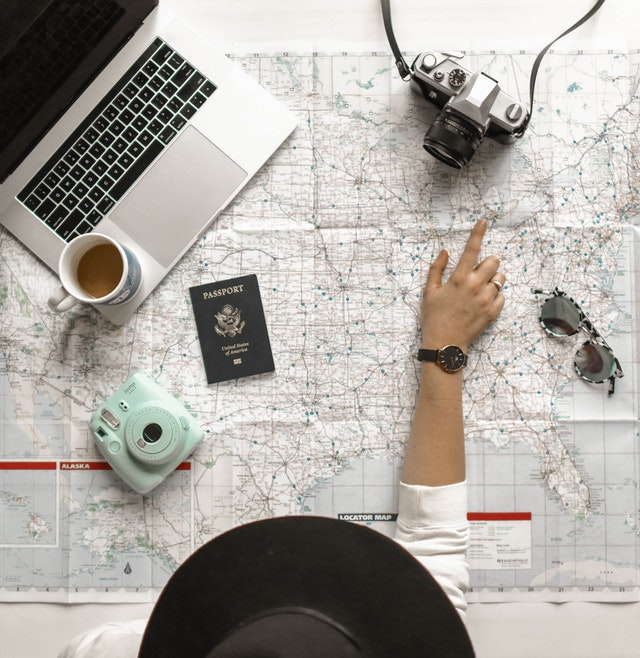Imagine letting go of your rigid schedule and setting off to live on foreign soil – immersing yourself in the cultures, experiences, and lifestyle of a new country by living like a local. Working while traveling the world as a digital nomad sounds like a dream.
The best part is that becoming a digital nomad is entirely possible if you know how to go about it. Read on for five expert tips to help you live and work abroad.
1. Get International Health Insurance
No matter how good the health and medical services are at your destination, you should still have an international insurance plan – and not only because you may need it. Certain countries require every traveler crossing the border to have travel insurance by law.
Expat Insurance is also necessary because you’ll be allowed to visit a specialist for treatment if you get sick or become injured. Before you plan to move abroad, do your research and choose an international insurance plan that provides global coverage.
2. Remember, You’re Not on Vacation
Although it may feel like you’re on vacation when you’re visiting beautiful places, you need to remember that you’re still working full or part-time – which can be a double-edged sword.
Living like a digital nomad means you need to find the right balance between going on adventures and seeing the world and making sure you have enough remote gigs to earn enough money. And, if your freelance career fails, you can’t simply find employment in the foreign country you’re staying in without a work visa.
The secret to getting all your work done and seeing the world is to use time differences between you and your clients to your advantage – for instance, you can go exploring in the morning and work in the evening, or you can switch up your routine when you want to go sightseeing at night… just be sure you’re meeting all your deadlines.
You might also like: Self Employment Tax Deductions for Bloggers
3. Save Money and Travel for Longer
This one is simple: by saving as much money as you can, you can travel the world for longer. Instead of blowing all your money on staying in hotels every night, stay in cheap hostels instead.
Hostels are generally cheaper than hotels, and they usually have excellent amenities – like laundry rooms, group events, communal kitchens, and Wi-Fi. Another option is to rent a room in an Airbnb or get accommodation by offering house and pet sitting services.
Instead of getting an Uber or taxi to get around, you can save a lot of money by using public transport or walking everywhere. Instead of splurging on $5 coffee and eating out, shop at local markets for fresh meat and produce and make your own food and coffee at home.
Instead of using mobile data to stay connected to the internet, look for free Wi-Fi at public libraries and prominent tourist attractions. If you save money by only spending on your necessities, it will be easier to travel long-term.
4. Don’t Forget to Do Your Taxes
If you’re an American citizen, you’ll still be required to pay taxes – even while you’re living overseas. Keep records of all your payments from clients and keep receipts for anything you may be able to claim for later. Getting professional help with your taxes from someone who knows their way around expatriate tax is also recommended.
Another thing to note: you’ll need to apply for Foreign Earned Income Exclusion Physical Presence Tax. You’ll only be permitted to return to the United States for 35 days out of a calendar year, or else be prepared to be considered a permanent citizen and pay regular American taxes.
If you have a Working Holiday Visa, you may also need to file taxes in the country you earned money in. Your accountant can use this information to calculate your taxes back home.
5. Pay Attention to Visa Regulations
All the different visa rules for different countries can be very confusing. Make sure you read through them carefully and double-check facts with official immigration websites or use a professional visa service if you’re unsure.
Most European countries permit Americans to stay for 90 days without a visa, but other countries like Indonesia and Thailand will only allow you to stay for 30 days. It’s vital to familiarize yourself with all the regulations because they are all different.
For instance, you will need to apply for your ETA tourist visa well ahead of time if you’re traveling to New Zealand and Australia, however Mexico, Canada, Peru, and the United Kingdom will permit you to stay for 180 days without one, so do your research long before you plan to go.
When you arrive at your destination, keep a record of how many days you stay there to avoid fines or deportation if you accidentally overstay.


